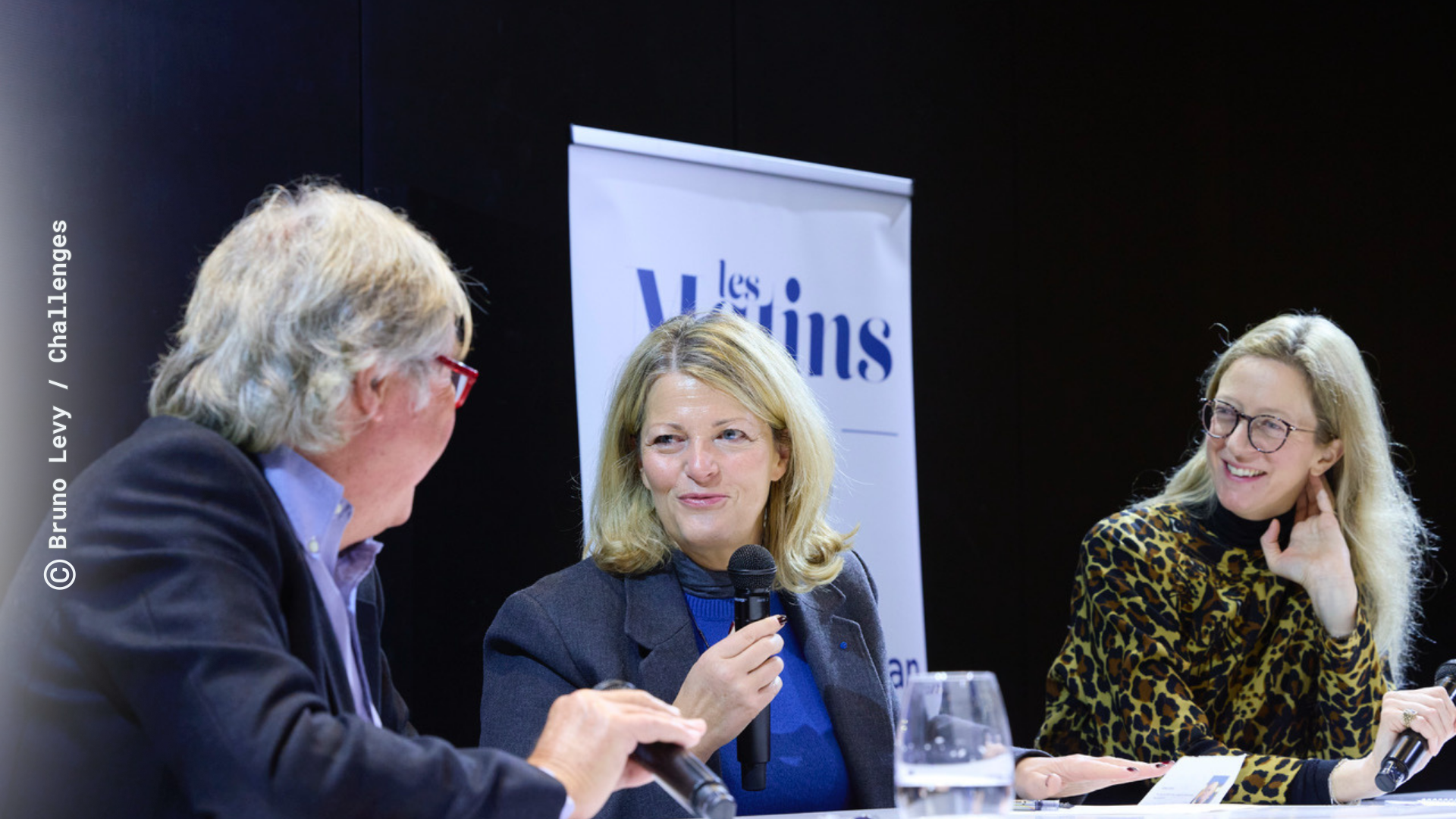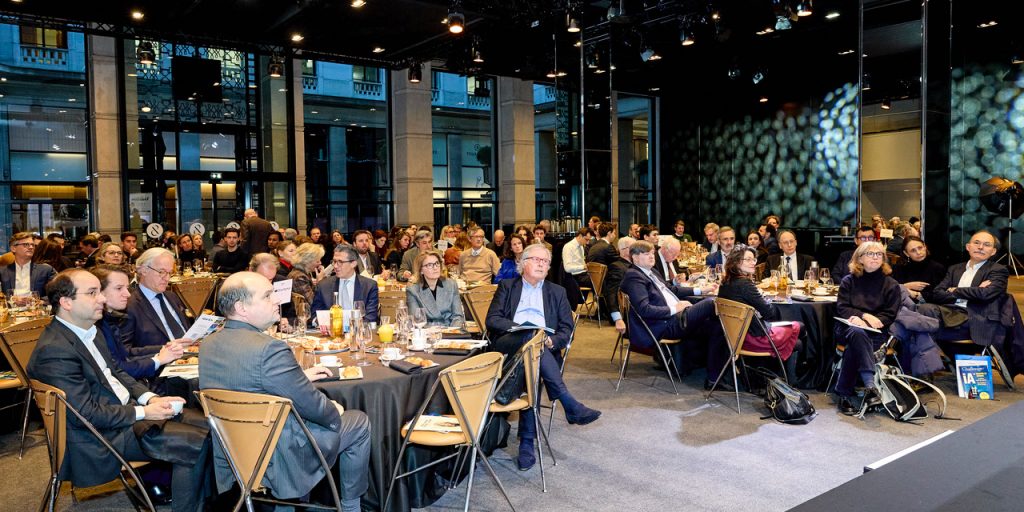An “Matin HEC” with Marie-Anne Barbat-Layani, president of the AMF

The Matins HEC hosted Marie-Anne Barbat-Layani on February 7th for their first edition of the year. The president of the Financial Markets Authority (AMF) expressed her concern for the attractiveness of the Paris financial market and called for the creation of a European capital union.
It was precisely sunrise and about a hundred people were sitting in the reception room of the Vendôme Pavilion to have coffee and attend in private the intervention of the “market cop” Marie-Anne Barbat-Layani. It was also three days before the Paris Summit on Artificial Intelligence, where the Parisian start-up Mistral AI shone. Will the French gem founded by the talented Arthur Mensch choose Paris the day it goes public? Will he be seduced, like so many others, by an IPO on the other side of the Atlantic? In response to this question from journalist Vincent Beaufils (H.75), the president of the AMF, a graduate of the École Nationale d’Administration (from the Léon Gambetta class) who has worked in the Treasury, Bercy, Matignon, as well as at Crédit Agricole and the French Banking Federation, urges Europe to develop “deeper and more powerful capital markets”. Although the Old Continent has the most abundant savings in the world, it struggles to keep it on its soil and direct it towards its own strategic projects (energy transition, AI, defense…). The Draghi report estimates Europe’s financing needs at 800 billion euros per year.
During her New Year’s wishes on January 16th at the Monnaie de Paris, the president of the AMF emphasized the urgency of maintaining Paris as a leading financial center. However, Vivendi‘s decision to choose London for the listing of Canal+ and Amsterdam for Havas’ listing highlights the fragility of this attractiveness. TotalEnergies‘ dual listing in New York also sends a negative signal. Many companies are counting on better valuation and easier access to capital in the United States. Marie-Anne Barbat-Layani emphasizes that Brexit had a very positive impact on the financial sector in Paris, and it is important not to lose this momentum, which is beneficial for France’s tax revenues. The Correzian, born in Ussel, cites the example of the British bank Barclays, which plans to transfer its European headquarters from Dublin to Paris. However, this trend cannot be considered as guaranteed: last year, 39 companies delisted from the stock exchange in France.

© Bruno Levy / Challenges
One of the strong points of the Place de Paris is the high presence of individual investors. Since 2020, one million new shareholders have entered the stock market. While 7% of French people own direct stocks (excluding life insurance or ETFs), 9% hold crypto-assets! However, these products, which are very unstable, are the subject of numerous complaints from savers.
The AMF is supporting the implementation of the European regulation Markets in Crypto-Assets (MiCA). However, the regulation of cryptos should be primarily at the European level, by giving more power to the European Securities and Markets Authority (ESMA). “It is urgent to give ESMA direct powers, at least over the major platforms. Currently, crypto actors can engage in ‘regulatory shopping’. Fragmentation is suboptimal: national regulators struggle to develop the necessary expertise,” adds Marie-Anne Barbat-Layani.
The guest of the day also warns against the “gamification” of investments, which blurs the line between gaming and real investment. These aggressive marketing practices target a young, mostly male audience, who tend to overestimate their financial skills. “These new investors will seek information from questionable sources, influencers, or on social networks,” she warns. “By the way, if you come across one of the fake Facebook profiles in my name giving stock advice, don’t go there,” she quickly adds. The AMF regularly receives dramatic testimonies from investors who have been victims of fraud, sometimes losing substantial amounts of money (on average, the damage amounts to 29,500 euros). The regulator has launched a campaign to raise awareness among younger people on TikTok and Instagram, using the codes of social media.
In the face of market changes, the specialist is calling on industry players to take responsibility. She reminds us that “even in a healthy body, there are always frauds.” She emphasizes that the AMF cannot do everything alone and that all financial ecosystem actors must make progress. Investment advisors, auditors, equity research firms, financial departments, and accountants all have a role to play in detecting and preventing fraud and abuse. As Canadian writer Margaret Atwood, her favorite author, writes, “Money counts.” Money matters.
The meeting ended with a traditional Q&A session with the audience, covering topics such as fraud, investment advice (including some given by ChatGPT’s AI), and the complexity of the Corporate Sustainability Reporting Directive (CSRD) in European regulation. Regarding the CSRD, the president of the AMF mentioned that the directive would likely be simplified, but emphasized the importance of not lowering European requirements for sustainable finance.
Published by Thomas Lestavel

